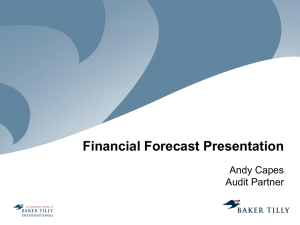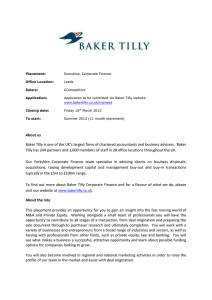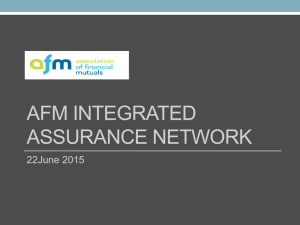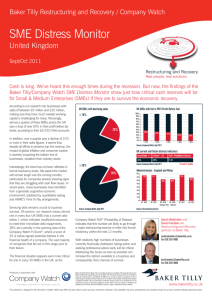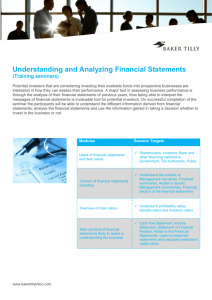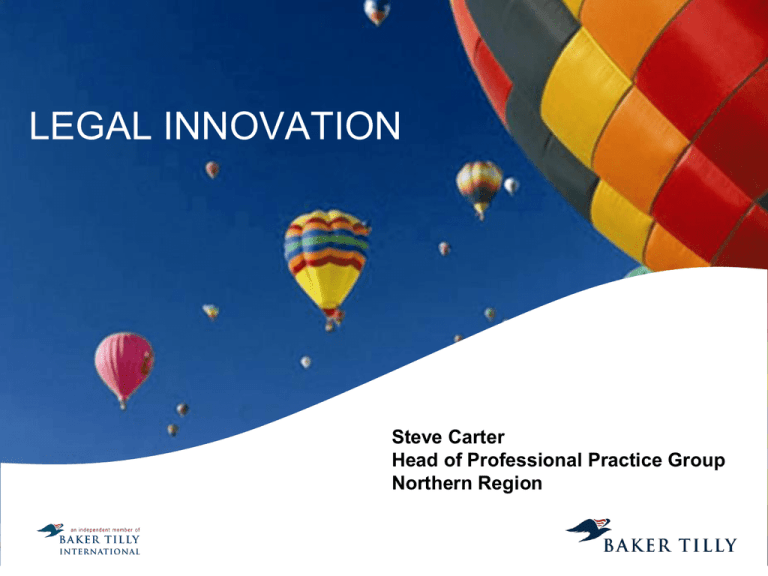
LEGAL INNOVATION
Steve Carter
Head of Professional Practice Group
Northern Region
New developments in an old
profession
•“We
always
overestimate the
change that will
occur in the next two
years and
underestimate the
change that will
occur in the next
ten,”
•“Don’t let yourself be
lulled into inaction.”
http://www.bakertilly.co.uk/sectors/professionalpractices/professional-practices.aspx
New developments in an old profession
An environment
for innovation
•Structures
•Funding
•Delivery
channels
Consumer brands
Entrepreneurs
MDP’s
Expect the
unexpected
Getting used to the new structures
• Some
initial problems
premises – client confidentiality?
• Outsourcing – quality of service
• Conflicts of interest
• Governance – dominance by one person
• Nominee ownership – who is really in control
• Shared
Structure – predictions 2020
• The
increasing complexity of
law firm structures will
challenge the regulatory
framework.
•A
fundamental review of what
legal activities are regulated will
reshape the market.
• Law
firms and ABSs will adopt
marketing strategies much
more reminiscent of retail
operations.
• Consolidation
in the market will
be driven by demand from big
brands to have white-labelled
legal offerings.
People – predictions 2020
a ‘lawyer’ is will change
significantly as a range of roles
develop within legal businesses
that do not involve directly
providing legal advice; non-lawyer
owners in particular will look at
what a person brings to the
business, not their qualification.
• Skills such as project and process
management will be critical to the
future success of firms.
• Regulation will focus on the
entity’s activity, rather than the
various individual legal
professionals.
• The idea of partnership bestowing
ownership rights in the same way
as it does currently will die out.
• Who
Funding
New focus on underlying performance
• What
• What
does a law firm make
are they worth and why
• What are the real maintainable earnings?
• Not all firms are the same even though on the outside they might
look it
• What makes the more profitable ones do better is thinking like a
business.
• Internal management is an anathema to many partnerships
Funding – predictions 2020
• As
both investors and law firms
better understand each other’s
requirements, investment will
flow more readily.
•A
process of natural selection
will thin out those without the
backing to compete.
•A
‘trade’ in law firms will
emerge as investors look to exit
– with few law firms business
planning more than three years
ahead, fears over the regular
three-to-five-year investment
cycle will recede.
• Law
firms will adopt proper
performance metrics
• “Multi
• “Multi
DELIVERY
– channel”
– dimensional”
• - Affiliations by supporting other
brands
• Move away from hourly rates
Delivery
• Are
the old ways the best?
• Separation
of process from value
• Non contentious services – access the library?
• On-line help as needed?
• Unbundling the service
• Pay as you go
• Scope
of the retainer – nothing is insurmountable
Building Brands
• The
• If
key to brand is consistency of service
Co-op can deliver in legal services what they do in, say, funeral
services, they will win.
Brilliant Law
• Bert
• Why
Black - £82m fortune
is he different?
• Run as a business
• Brilliant law – based on peoples search habits
• Fixed fees
New models
• Riverview
law approach to commercial customers
from scratch – what do clients actually want – then designed
a service around it.
• Start
• Top
customer support people
• Operating
and customer service model
• End
to end technology
• Low
overheads
Challenges to traditional ways
• How
much is an hour of your time really worth?
• Anyone
know how charge out rates are set?
• Why is your rate for an hour what it is?
Starting from scratch
• What
do customers want
• Where
are the customers
• How do you get them
• What profit does the service deliver?
• What is the business risk?
• Is the return worth the risk?
• How
much capital does it need?
• Who will provide the capital?
Survey of non ABS firms
FINAL THOUGHTS
Conclusions
•Most
adaptable will
survive
•Others
•Law
will not
firms will
continue to fail in
increasing numbers
for a variety of
reasons
•Scottish
market is in
a similar state to
south
•Anglo- Scottish
mergers is a trend
•LSA (Scotland) 2010
– identical logic to
LSA 2007
•49% rule – will it
matter?
What of the future for the legal profession?
• In
2020 many current partners will be long past retirement
age.
• What
is “opportunity” for the next generation?
• Pay for their retirement?
• Buy their practice – what are you buying?
What of the future for the legal profession?
“The legal sector has not had to change for hundreds
of years as it has been a closed shop with high barriers
to entry. Those have now changed. Innovators can
come into the sector and do it in a different way.”
And do it they will.
Contact details
Steve Carter
Tel: +44 (0) 161 830 4000
E-mail: steve.carter@bakertilly.co.uk
While every effort has been
made to ensure the
accuracy of these notes, the
information contained in
them cannot, by its nature,
be comprehensive. No
action should therefore be
taken without first seeking
specific professional advice.
© 2013Baker Tilly UK Group LLP, all rights reserved
Baker Tilly Tax and Advisory Services LLP, Baker Tilly UK Audit LLP, Baker Tilly Corporate Finance LLP, Baker Tilly
Restructuring and Recovery LLP and Baker Tilly Tax and Accounting Limited are not authorised under the Financial Services and
Markets Act 2000 but we are able in certain circumstances to offer a limited range of investment services because we are
members of the Institute of Chartered Accountants in England and Wales. We can provide these investment services if they are
an incidental part of the professional services we have been engaged to provide.
Baker Tilly & Co Limited is authorised and regulated by the Financial Services Authority to conduct a range of investment
business activities.

